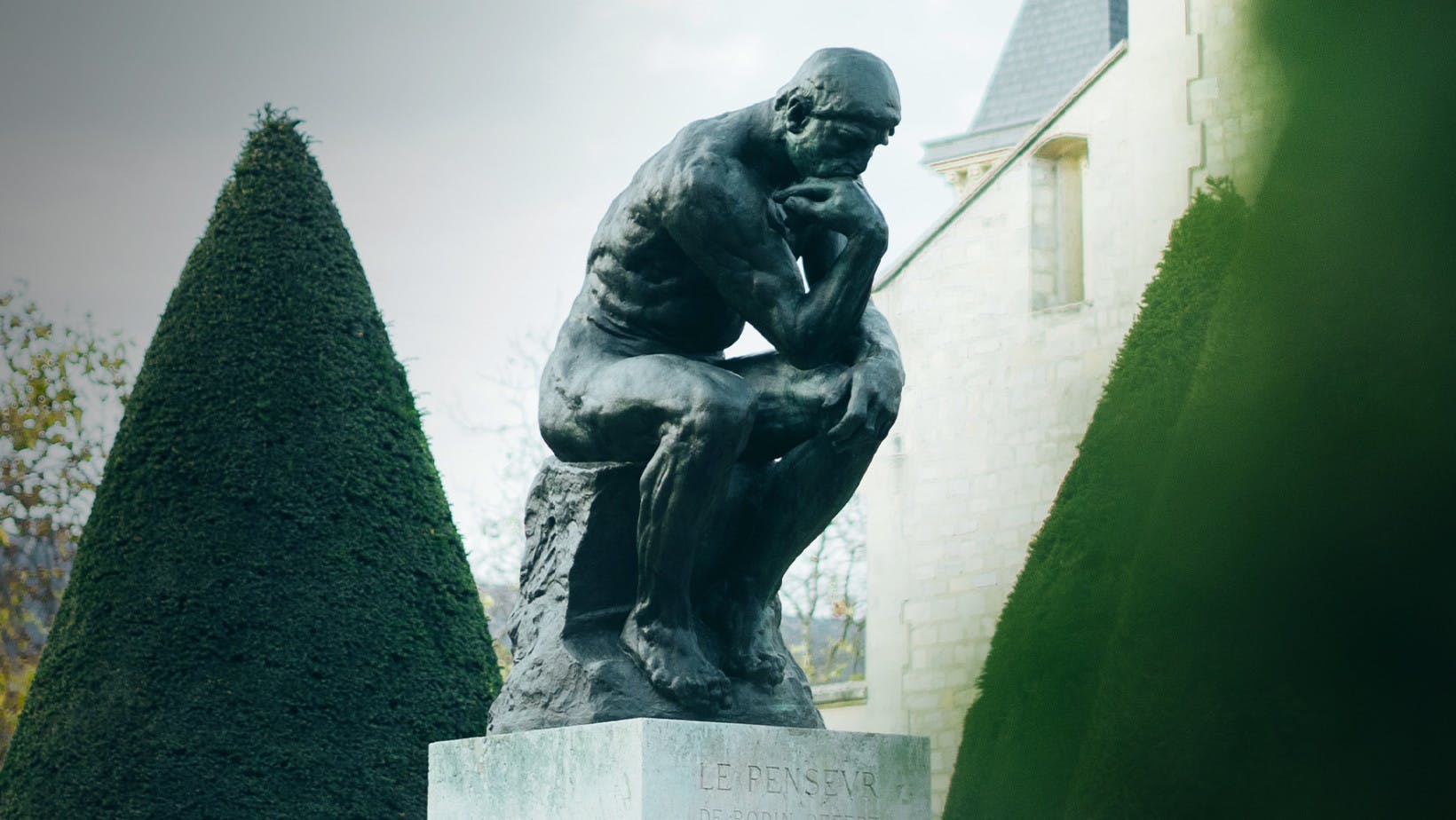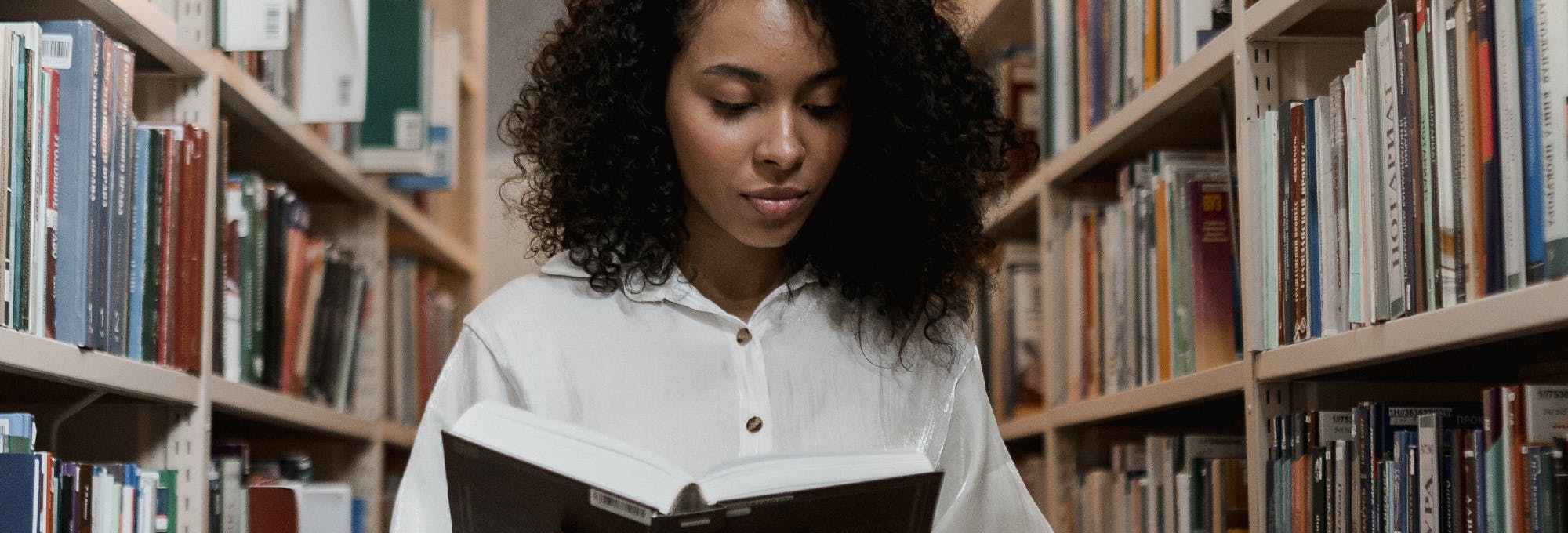
College Success
What Are the Liberal Arts in Education?
The article defines what liberal arts education is, explains the different degree fields, and lists possible professions you can do with the degree.
Jennifer Rivera
Subject Matter Expert

Learn about the value and benefits of studying literature: how it develops our skills as well as shapes our understanding of the society we live in.
Many libraries in the U.S. are under attack.
From small towns to big cities, it’s more common to see protests outside of libraries. Libraries are under the microscope and being scrutinized for what content they have on their shelves.
Some people see certain books as a threat to society. While others believe everyone has a right to access any information they wish. The fact is literature is so powerful some people see it as dangerous and want to choose what the public has a right to read.
This is not the first time in history that people have tried to censor literature for what it says. So what really is literature and why is it so powerful?
In this article, we’ll define literature, talk about the history of literature, and the benefits of studying literature in college.
Literature is an art form that uses language to create imaginative experiences. It includes poetry, drama, fiction, and nonfiction.
Literature communicates ideas and emotions.It entertains, educates, and inspires readers. Literature explores complex themes and is an important part of human culture.
From its original Latin derivative, "writing formed with letters," to its current definition, a "body of written works," our understanding of literature has evolved.
Literature explains society and culture. It both criticizes and affirms cultural values based on the writer’s perceptions. It expresses and explores the human condition. It looks back to the past and onward toward the future.
As literature represents the culture and history of a language or people, the study of literature has great value. To study literature means looking deeply into a large body of written work and examining it as an art form.
Of course, there are many different literary genres, or types of literature. At a liberal arts school, a literature program, a student would study these genres extensively and understand the historical and cultural context they represent.
Students in a college literature program examine many forms of literature, including:
Poetry
Fiction
Nonfiction
Drama
Prose
Some definitions of literature separate fiction into 2 categories: literary fiction and genre fiction. Genre fiction consists of more popular literature read for entertainment. Some examples of genre fiction include crime, fantasy, and science fiction stories.
Literary fiction explores themes of the human condition. These stories cannot be further categorized and are read primarily for a philosophical search for the meaning of life. Examples of literary fiction include The Great Gatsby by F. Scott Fitzgerald and Beloved by Toni Morrison.
You can discover more distinctions by studying literature in depth.
The foundation of literature is the English Language. By reading literature, you can improve your knowledge of language: vocabulary, grammar, sentence structure, content creation, and more. When you immerse yourself in William Shakespeare, Celeste Ng, or Chinua Achebe, you're absorbing new words, expressions, and ideas—without even realizing it.
You can use everything you learn to improve your own writing and communication skills. You will use these skills beyond high school and college. In our everyday lives, we navigate personal relationships, craft emails, present projects, collaborate with teammates, analyze data, and more.
Yuval Noah Harari has written much of his own literature on the history and success of the human race. In his book Sapiens, he emphasizes our ability to craft stories as one of our most valuable skills: "Fiction has enabled us not merely to imagine things, but to do so collectively.” Through these collective stories, we learn about the human experience, both in smaller interpersonal ways and on a larger, more global scale.
Literature helps us reflect on the human experience, teaching us about who we are and the world we live in. It presents a range of emotions, from love to anger to grief to happiness. It gives us insight and context about societal norms and cultural traditions.
It explores our history and our present; it imagines our futures. It introduces us to new ways of thinking and living, compelling us to think critically and creatively about our own experiences.
Through literature, we see we're not alone in our thoughts and feelings. The characters we read about have already experienced similar difficulties and worked to solve or change them, giving us the blueprint to do the same.
Jane Austen's Pride and Prejudice goes beyond social commentary to explore the complexities of familial relationships, romantic relationships, and friendships. Mr. Darcy insults Elizabeth Bennet without meaning to, Elizabeth Bennet makes harsh judgments without knowing all the facts, and Mrs. Bennet worries about her daughter's future constantly. We can see ourselves in them.
When we connect with literature's characters and narratives, we learn how to empathize with others. While we’re not physically experiencing the raging seas in Virginia Woolf's To the Lighthouse or the loss of a loved one in William Shakespeare's Romeo and Juliet, we are swept up in the story and the emotion. This helps us develop empathy and emotional intelligence.
In a 2006 study, professors at the University of Toronto concluded a lifetime exposure to literary fiction positively correlated with advanced social ability. In 2020, the Harvard Business Review encouraged business students to read literary works to enhance their abilities to keep an open mind, process information, and make effective decisions.
With words, and not actions, authors create spaces where we can explore new ideas, new structures, new concepts, and new products. When the only limit is your imagination, anything is possible in creative writing.
We can dive into the past to understand British society at the turn of the 19th century in Austen's Pride and Prejudice or jump into potential futures through Harari's Homo Deus. We can consider alternative futures like that in George Orwell's 1984 or conduct experiments in Robert Louis Stevenson's The Strange Case of Dr. Jekyll and Mr. Hyde.
We don't encounter monsters or humanoid robots in our everyday lives (at least we hope not!). But when we explore them through literature, we’re equipped to consider, challenge, and analyze concepts we don't yet know or understand. This practice opens our minds and allows us to be more flexible when we face the new and unknown. These critical thinking skills enable us to process information easier.
With everything we learn from literature and the skills it helps us develop, literature changes the way we think, work, and act.
When we can think more critically, we arrive at different conclusions. When we open our minds and empathize with others, we better accept and tolerate differences. When we can articulate and communicate effectively, we work better together to achieve and succeed.
Whether English literature or Russian literature or French literature, literature is the key to understanding ourselves and society.
Looking to study literature and develop your own writing skills? Outlier.org’s cutting-edge College Writing course is a great place to start. Through interviews with celebrated writers and writing secrets from instructor John Kaag, you'll learn how to use words to express yourself and communicate more effectively.
The course explores:
How to level up your love letters
What writing and magic have in common
How to write better professional emails using The Princess Bride
How to get your writing published
How to create the perfect short sentence
Outlier courses are 100% online, so you can learn at your own pace from the comfort of your own home. At $149 per credit, you’ll save 50% compared to other college courses, all while earning transferable credits from the top-ranked University of Pittsburgh. If you decide to continue your education in literature, you can take the credit with you to the degree program of your choice.
It’s no doubt studying literature will give you a well-rounded education. It is through literature that societies have grown and developed—inspiring change throughout the world. Choosing to study literature will not only give you a glimpse into the past but help you articulate the present and inspire change in the future. By studying literature you will have the power to connect with others and truly touch their hearts and minds.
Bob Patterson is a former Director of Admissions at Stanford University, UNC Chapel Hill, and UC Berkeley; Daisy Hill is the co-author of Uni in the USA…and beyond published by the Good Schools Guide 2019. Together, they have established MyGuidED, a new educational tool for students looking to apply to university (launching 2023).
Outlier (winner of TIME Best Inventions 2020) and Golden Gate University (#1 school for working professionals) have redesigned the experience of earning a college degree to minimize cost and maximize outcomes. Explore a revolutionary way to earn your college degree:

College Success
The article defines what liberal arts education is, explains the different degree fields, and lists possible professions you can do with the degree.
Subject Matter Expert

College Success
This article explains what a communications degree is and the benefits of studying it. It lists the skills a communication major has and the best-paid jobs, including the entry-level and average salaries.
Subject Matter Expert

College Success
Learn more about why a college degree is important by understanding the benefits and value of having one.
Former Stanford Director of Admissions